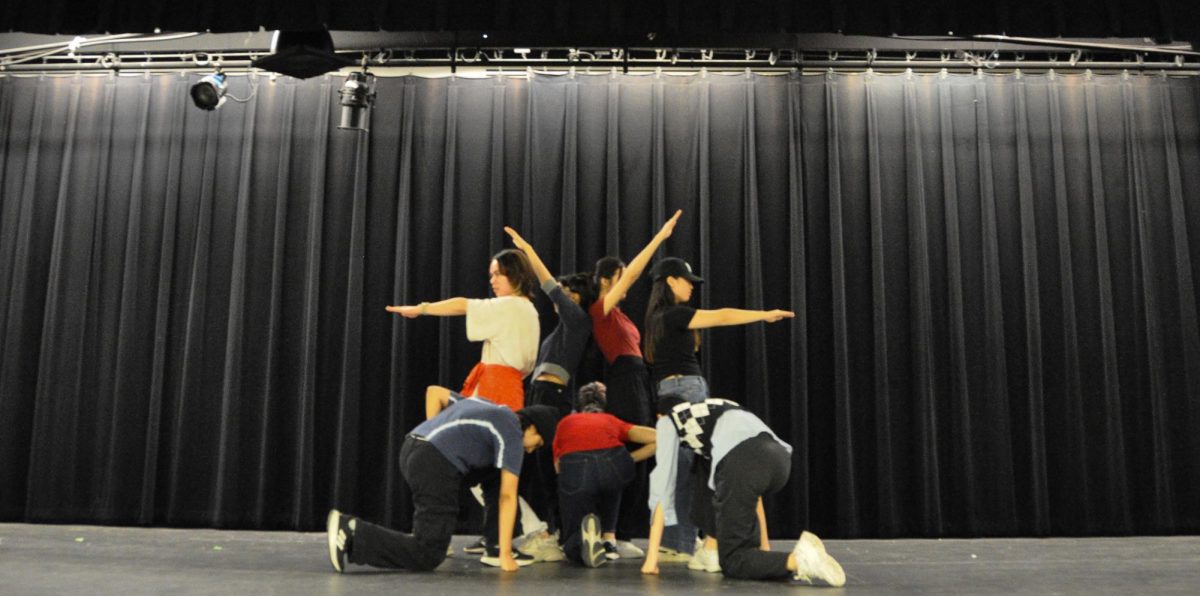With the growing popularity of the Internet, schools have taken it upon themselves to integrate it into the learning environment. However, RRISD’s internet blocks hurt students because they often block legitimate educational material, do not prevent students being off-task with technology, and can usually be easily circumvented.
First of all, students know which websites are appropriate and which aren’t. According to the district, the blocks are to prevent students from viewing inappropriate content, but high schoolers are mature enough to know what websites are appropriate to visit in a learning environment. The district does not need to make that decision for the student.
In addition, students can be trusted to use technology responsibly and for educational purposes, and to stay on-task in class. Blocking sites such as social networks or video game pages does not serve any purpose.
Any student determined to not do their work can simply either use their own computer, bring games on a flash drive and play them that way, or simply circumvent the blocks, which are often not implemented correctly.
Because of this, any effort and time the district spends on tightening these blocks will also end up being for nothing. The harder the district works to tighten blocks and crack down on websites that students visit secretly, the harder determined students will try to circumvent the blocks.
The blocks are also not all-encompassing — students with cellular telephones and a mobile data plan can easily use them as “hotspots,” essentially bypassing the district’s network entirely, and using their mobile’s data plan.
In some cases, the blocks can actually hamper the ability for students to find out information on some topics. The district may consider specific topics too sensitive to allow students to view them, even though some classes may need access to it. Such blocks inconvenience teachers as they must either print the page out or change their curriculum.
Studies performed by various organisations, including a study by the Electronic Frontier Foundation, have found that blocking software, such as the one used by the district, often have a 95% to 98% false positive rate. The study also showed that parts of the curriculum were often blocked mistakenly, hurting students’ ability to research certain topics.
In addition to hampering students’ access to educational resources, their effectiveness is greatly reduced because they are often implemented improperly, denying students access to any page that matches a certain keyword anywhere within it. This can cause problems, as there is a possibility of a comment on a website triggering this filter, thus denying access to the entire resource, or denying the student the ability to download a file that may inadvertently contain a string of characters that triggers the filter.
In the end, the Internet blocks can hurt students’ access to educational resources, inconvenience teachers, and are circumvented easily by students determined enough to visit blocked websites. There’s no reason for the district to waste resources on keeping up with websites to block, when they could instead use this effort to keep campus technology working well.

![In their full runway outfits, (from left) Audrey Lee 25, Olivia Lucy Teets, 25, Fashion Design teacher Ms. Judy Chance, and Xueying Lili Yang pose for a photo. All three girls made it to Austin Fashion Week by getting in the top 10 in a previous runway show held by Shop LC.
[I like my students] creativity and how they can look at a fabric and make it their own, Ms. Chance said.](https://westwoodhorizon.com/wp-content/uploads/2024/04/IMG_9686-e1714088765730-1129x1200.jpeg)





Jackson Freeman • Nov 13, 2014 at 9:46 pm
A simple option is to link the filters to your ID number. Because the ID data has your graduation date, the IT department could just reset permissions depending on what level you are in. High schoolers would be able to use wikipedia and access information about serial killings across the US for forensics, but elementary students would be limited to basic mail and school search engines.
Mrs. Day • Jan 21, 2014 at 4:04 pm
Granted, I am a teacher and a parent in this district, so I naturally disagree with some of your points, but I do agree with others. Yes, most students know what sites are appropriate and which are not, but unfortunately some don’t or just don’t care. You also need to remember high school students are not the only students in this district. There are small children using the same internet as the high school students that do need to be protected. I do agree that it can hamper a student’s ability to do research and a teacher’s ability to teach; it hampers mine sometimes too, and it is frustrating. Any ideas for a better solution to make sure small children are protected at the same time high school students’ ability to learn is not interfered with?